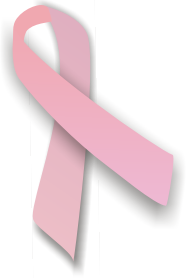Penn State College of Medicine researchers have found a virus that kills human breast cancer cells. This development could lead to new treatments of breast cancer. The virus is called adeno-associated virus type 2 (AAV2), and the scientists showed in the lab that it kills all breast cancer cells in various stages of the disease. The results were published in Molecular Cancer.
The researchers noted that they still do not know the mechanism of how the virus takes down the cancer, which would need to be figured out before a drug or treatment could be developed. However, they do know that the virus does not affect healthy cells and does not trigger disease in humans. This virus is also being studied in other types of cancer, including prostate, cervical, mesothelioma, squamous cell carcinoma and melanoma.
 As many of us know, October is breast cancer awareness month and the color pink can be seen all over, from NFL players’ uniforms, to magazines, t-shirts, water bottles, Facebook profiles and more. This is for good reason, as according to The American Cancer Society during 2011 approximately 39,520 women and 450 men (yes, men are also affected) are expected to die from breast cancer. Many are hopeful for a cure to breast cancer, which would eliminate the current treatment options of chemo or radiation therapy that take a major toll on the patient.
As many of us know, October is breast cancer awareness month and the color pink can be seen all over, from NFL players’ uniforms, to magazines, t-shirts, water bottles, Facebook profiles and more. This is for good reason, as according to The American Cancer Society during 2011 approximately 39,520 women and 450 men (yes, men are also affected) are expected to die from breast cancer. Many are hopeful for a cure to breast cancer, which would eliminate the current treatment options of chemo or radiation therapy that take a major toll on the patient.
The virus sounds promising, but in biotechnology there is a long road ahead for the potential therapy to move from lab bench to product. Before the potential treatment is approved for sale it will have to undergo additional research, pre-clinical trials and animal studies, as well as three phases of human trials.
Excluding cancers of the skin, breast cancer is the most common cancer among women, accounting for nearly 1 in 3 cancers diagnosed in U.S. women according to The American Cancer Society. With statistics like that, one can only hope that a cure for breast cancer is around the corner and this virus may be that cure.









